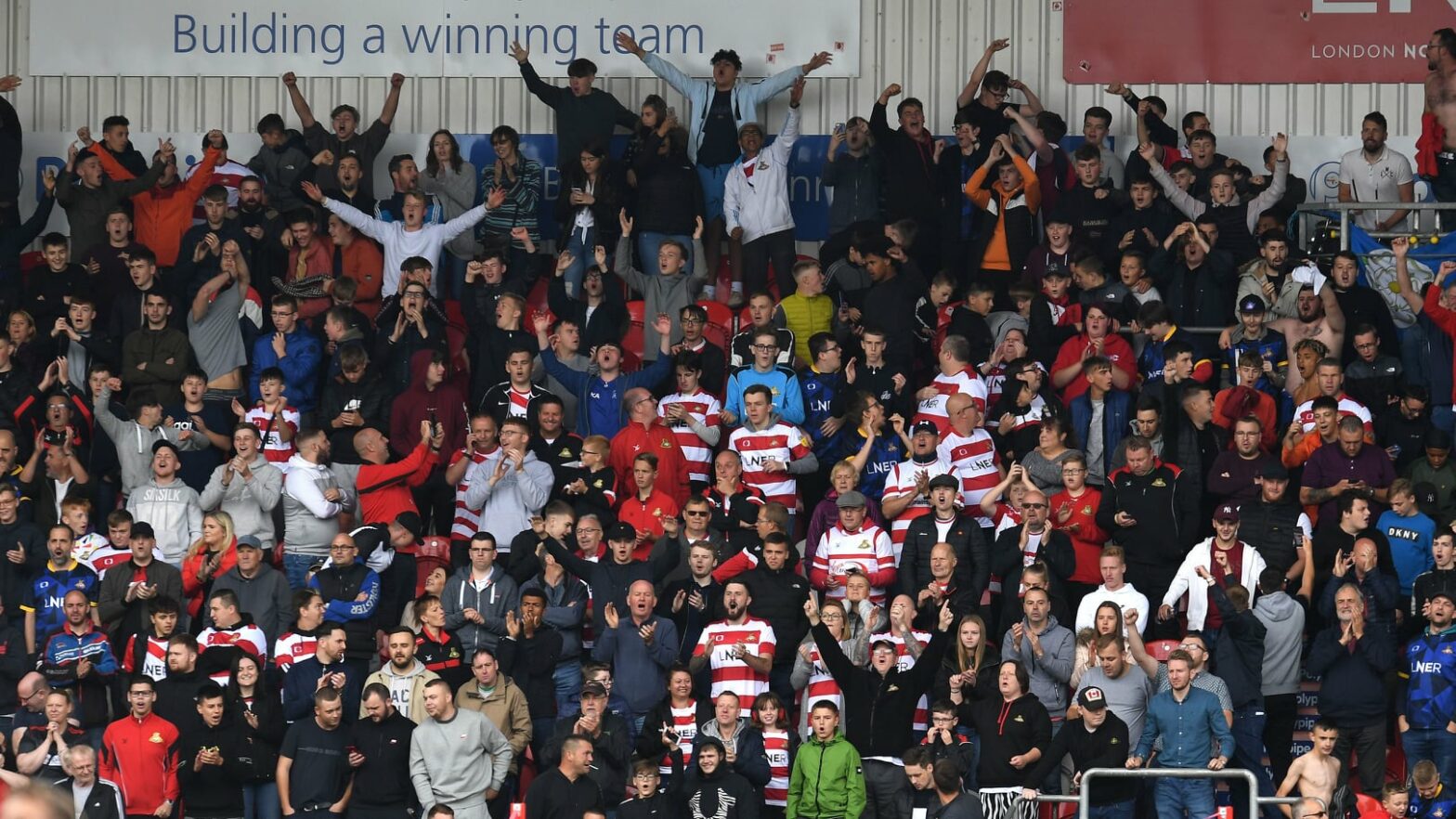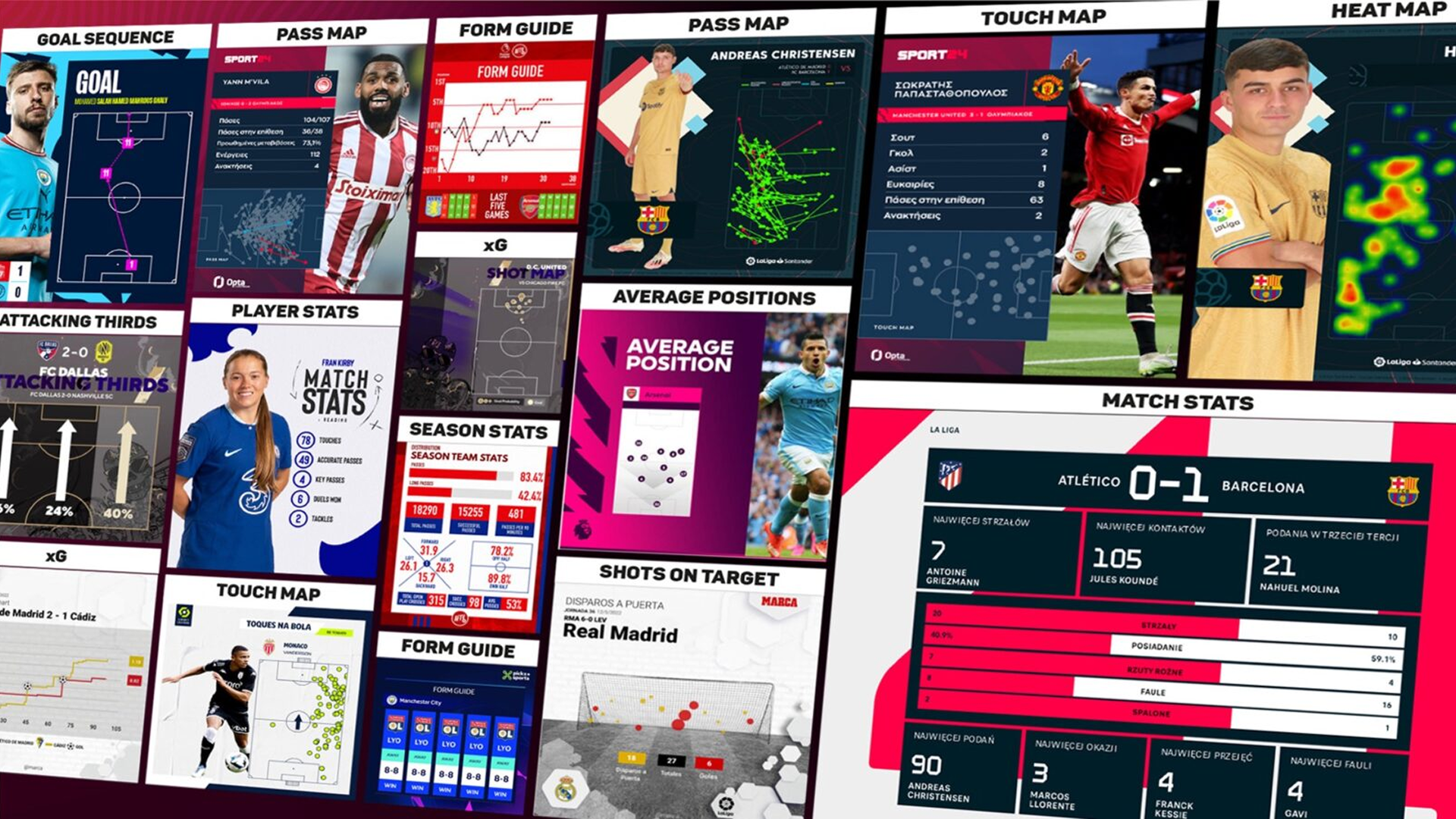In the new episode of the Football Busines Podcast, we discussed how football clubs can increase attendance post-Covid era with Mark Bradley, Director of the FBIN Knowledge Partner The Fan Experience Company, and Shaun Lockwood, Chief Operating Officer of Doncaster Rovers. This article will highlight the podcast’s key questions.
What is the role of matchday revenue or stadium attendance to football clubs?
Mark: I think in general terms, we have to be very clear that there are two types of football clubs. There is the elite who could actually operate with empty stadiums due to the nature of their global presence. I reckon matchday revenue accounts for only around 16% of the top-tier’s total generated income. Meanwhile, there are still a large number of leagues in Europe that are still not in the elite, which we’re talking about 95% of football clubs. They, to a different extent, rely much more on matchday revenue. The likes of matchday tickets, secondary sales, hospitality, etc.
Shaun: For Doncaster Rovers, matchday revenue is incredibly important. To put the perspective on what Mark was saying regarding broadcast revenues, the money we will get from broadcasting directly, or streaming is not even 5% of what we earn in terms of season tickets or match ticket revenues. So the huge gulf of difference between what you probably see at the top end with the Premier League and the clubs that earn TV revenues from Sky’s deals and what’s happening further down the line. One of the things we’ve done as a club is to try and generate revenue away from football to provide that kind of stable footing, which has been really important during the COVID-19 era. However, nothing is comparable to earning income from season ticket revenue. It is the bread and butter of exactly what you need to keep the club going. Thus, it is crucial that we have been able to bring fans back to stadiums.
Social distancing has turned sports stadiums into a financial burden? How did Doncaster Rover deal with that challenging period?
Shaun: Prior to the pandemic, we’ve made a lot of attendance through our work with schools and junior football teams, which generally reached a level of 10,000 spectators. Last year when everything was in lockdown, our biggest strength – community engagement became our biggest weakness. Schools didn’t want to get players to engage with them. Likewise, we’ve got red-zone restrictions or player bubbles from the EFL’s perspective. So at that time, our challenge was to look at different ways to keep fans engaged. Secondly, more fans are now allowed to enter the stadium without restrictions. Still, we need to take some measures and ask for proof of negative verification. So our next challenge is to create a safe in-stadium experience for fans, trying to boost their confidence to support the players and us. Third, the pandemic kind accelerated fans’ new leisure habits. Nowadays, people may easily find similar entertainment elsewhere. So, we need to work hard and compete with invested industries outside of football and sports.
Mark: After 18 months without football, 43 percent of elderly fans, or so-called boomers, planned not to return to stadiums (according to an Oracle report). Hence, Doncaster Rovers created a socially distant part of the stadium for those who might feel a little nervous about being in large crowds. Also, as mentioned, all restrictions were lifted quite unexpectedly last August in the UK. It caught many of us out because we were preparing for a social distance experience. The concept of a new normal is crucial to me. It’s a paradigm shift since everything we believed in and worked for has changed. Though some data has to be clarified, we’ve seen several particular challenges. For one, there is evidence that fans are less tolerant of bad stadium experiences than they were before the epidemic. The 18-month break has allowed many fans to reflect and consider if they are valued by their club. So, I believe clubs that made efforts in community engagement before the pandemic are really benefitting more after the epidemic because they’re looking at a sustainable model to expand attendance.
The future of sports stadiums is certainly paperless or contactless. How does a club start its digital ticketing journey? Especially lower-tier clubs with fewer resources.
Shaun: For a club like us, a large portion of our season-ticket holders and core audience are 60 and older, and it’s unlikely that we’ll ever be fully contactless. Hence, we respect this vast audience group and move things in on a smaller scale rather than pushing it. We implemented a barcode entry system this year, which has gone quite well. Yet, rather than a barcode entry for an entire access control process, we only put it as the halfway point. Access control will come further down the line, but we want people to get used to it gradually. We also introduced contactless in terms of the catering kiosk long before the pandemic. Car parking is probably the next thing we’ll look at regarding the contactless journey, in which the fans will be able to make the booking with their phone or a debit card. Still, you’ve got to embark on the digitization journey because it will be expected by the younger parts of society. We just need to not isolate the older group who is not quite ready for that yet. So we’re trying to do but respecting both sides of the coin.
Mark: Yeah, I agree with Sean. If a club is a community asset, we cannot just focus on technology-savvy ones. If you were just a commercial business, you might do what will maximize your profits. However, football clubs have greater responsibilities to their communities, so there must be a good balance. Sure, that might mean things cost a little more. Yet, you’ve got to think about civic perceptions as well. What do other community partners, the council, the municipal people believe? What does a local business think? What does the provincial government consider? What do schools, colleges, and universities think? If you’re saying we do whatever brings in the fastest buck, then you’re just any other commercial organization, and you shouldn’t get any special treatment. But we know football clubs are recognized as unique community assets. So I think it’s essential for us to be completely inclusive when we do these things, even though it does provide challenges and is perhaps not the quickest route to generating revenue.
What are some ways clubs can club increase their stadium attendance or matchday revenue?
Mark: Before the pandemic, there was a mentality of increasing attendance, similar to growing sales. But you can only affect it, not control it. In reality, big business does not rely just on sales. It creates values, engagement, and emotional bonds.
“Football clubs need to understand that we can’t simply ask how do we increase attendance? The real question we should be asking is, how do we engage our communities more?”
This can be done in four areas. First is the experience itself. Second, the club’s identity and purpose. Fans are attached to one team based on specific values and history. Rather than just being a sports club, football teams should thrive to become community organizations, owning greater responsibilities and taking on government tasks. The likes of Mata and Common goal or Marcus Rashford with his food poverty program. The third is to ask for instant and continuous feedback, which football clubs don’t usually do very well. Finally, it is to change the club’s culture to embrace those community-driven purposes.
Another quick-win strategy for clubs is to repurpose their stadium’ usage between matches. People use various rooms for conferences, banquets, etc., but things like changing rooms may simply be converted into consultation rooms. For example, the UK’s National Health Service also faces space issues. Hence, clubs can generate both an additional revenue stream and societal values.
Shaun: From a Doncaster perspective, I’d say it is all about community engagement. We’ve worked hard to be the community-focused club by looking after the Doncaster community, whether they’re football fans or not. For instance, we have launched many campaigns over the past six or seven years about mental health. We organized events where people were invited to our stadium to have coffee and cake or play board games with our players and staff. We also teamed up with the local NHS to raise awareness of mental health issues. And as Mark said, we utilize our stadium for other meaningful purposes. During the vaccine rollout, our fan bar became a vaccine center. Even now, we’ve still got drive-thru blood testing taking place at part of the stadium.


 Upgrade to Premium Now
Upgrade to Premium Now








